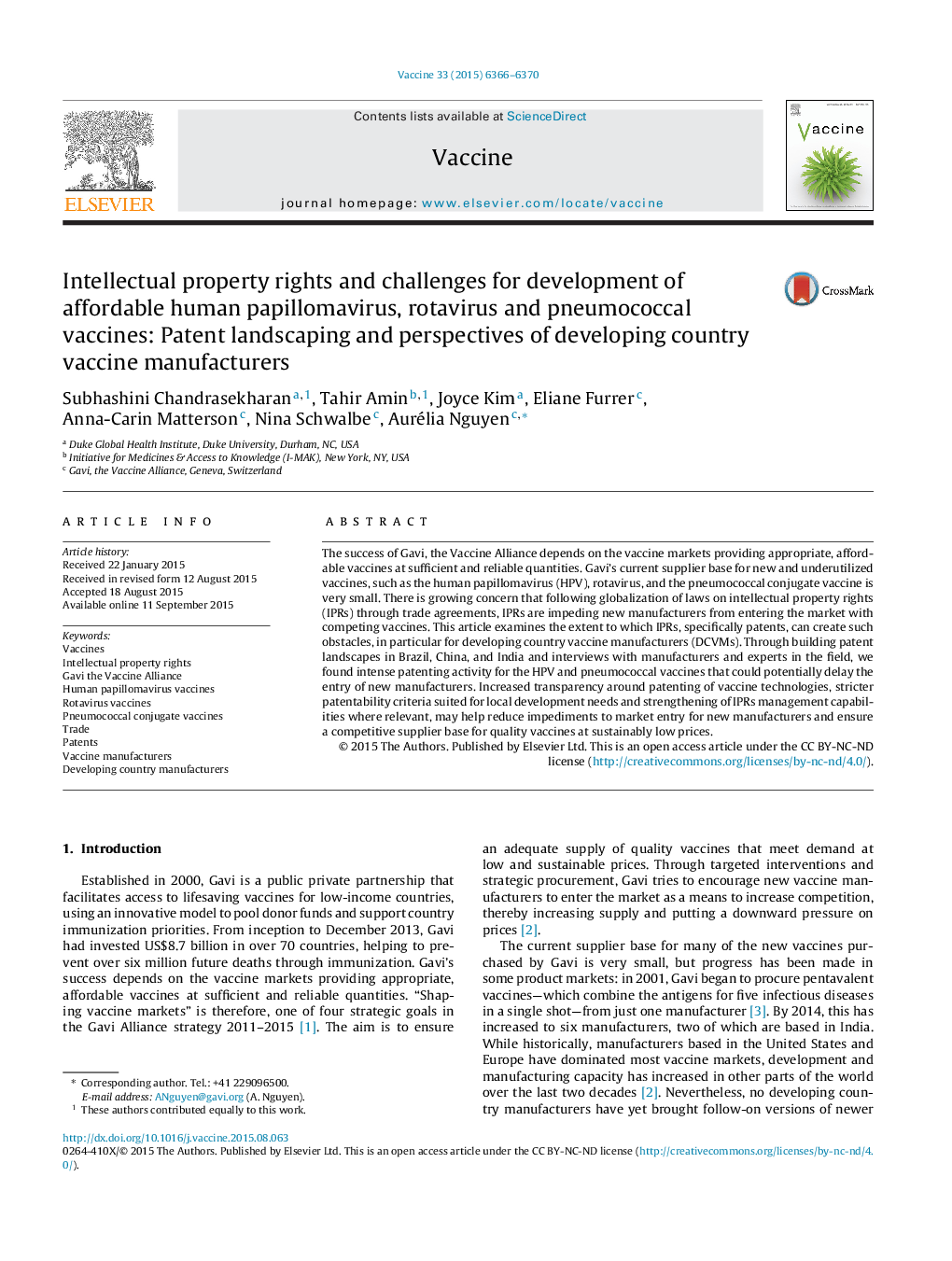| Article ID | Journal | Published Year | Pages | File Type |
|---|---|---|---|---|
| 10963728 | Vaccine | 2015 | 5 Pages |
Abstract
The success of Gavi, the Vaccine Alliance depends on the vaccine markets providing appropriate, affordable vaccines at sufficient and reliable quantities. Gavi's current supplier base for new and underutilized vaccines, such as the human papillomavirus (HPV), rotavirus, and the pneumococcal conjugate vaccine is very small. There is growing concern that following globalization of laws on intellectual property rights (IPRs) through trade agreements, IPRs are impeding new manufacturers from entering the market with competing vaccines. This article examines the extent to which IPRs, specifically patents, can create such obstacles, in particular for developing country vaccine manufacturers (DCVMs). Through building patent landscapes in Brazil, China, and India and interviews with manufacturers and experts in the field, we found intense patenting activity for the HPV and pneumococcal vaccines that could potentially delay the entry of new manufacturers. Increased transparency around patenting of vaccine technologies, stricter patentability criteria suited for local development needs and strengthening of IPRs management capabilities where relevant, may help reduce impediments to market entry for new manufacturers and ensure a competitive supplier base for quality vaccines at sustainably low prices.
Keywords
Related Topics
Life Sciences
Immunology and Microbiology
Immunology
Authors
Subhashini Chandrasekharan, Tahir Amin, Joyce Kim, Eliane Furrer, Anna-Carin Matterson, Nina Schwalbe, Aurélia Nguyen,
